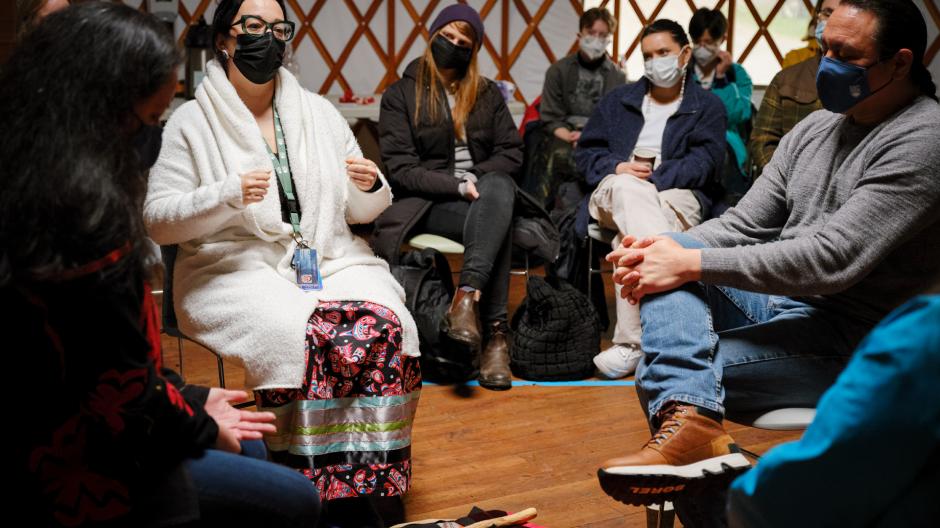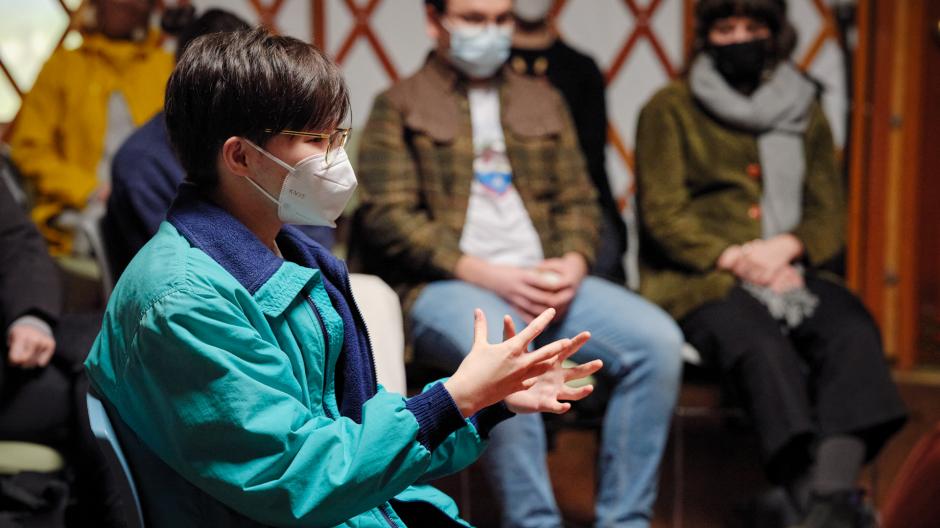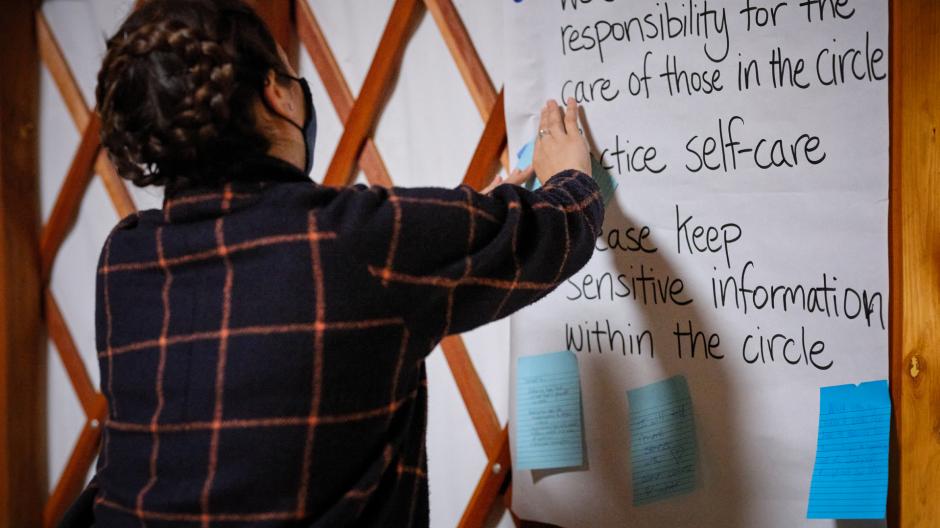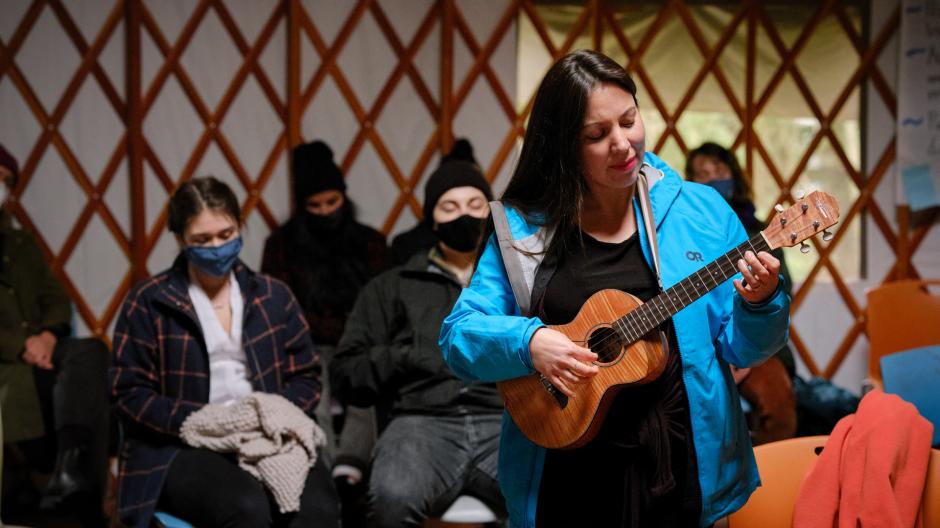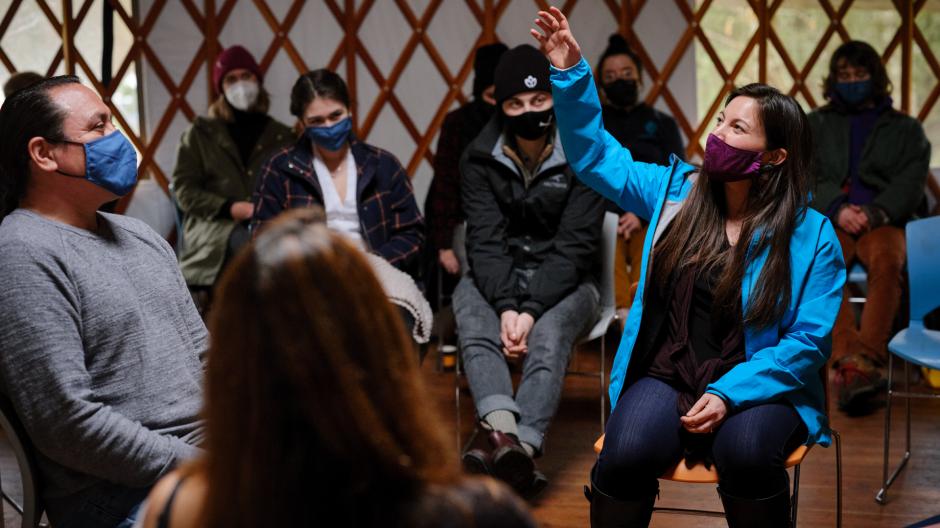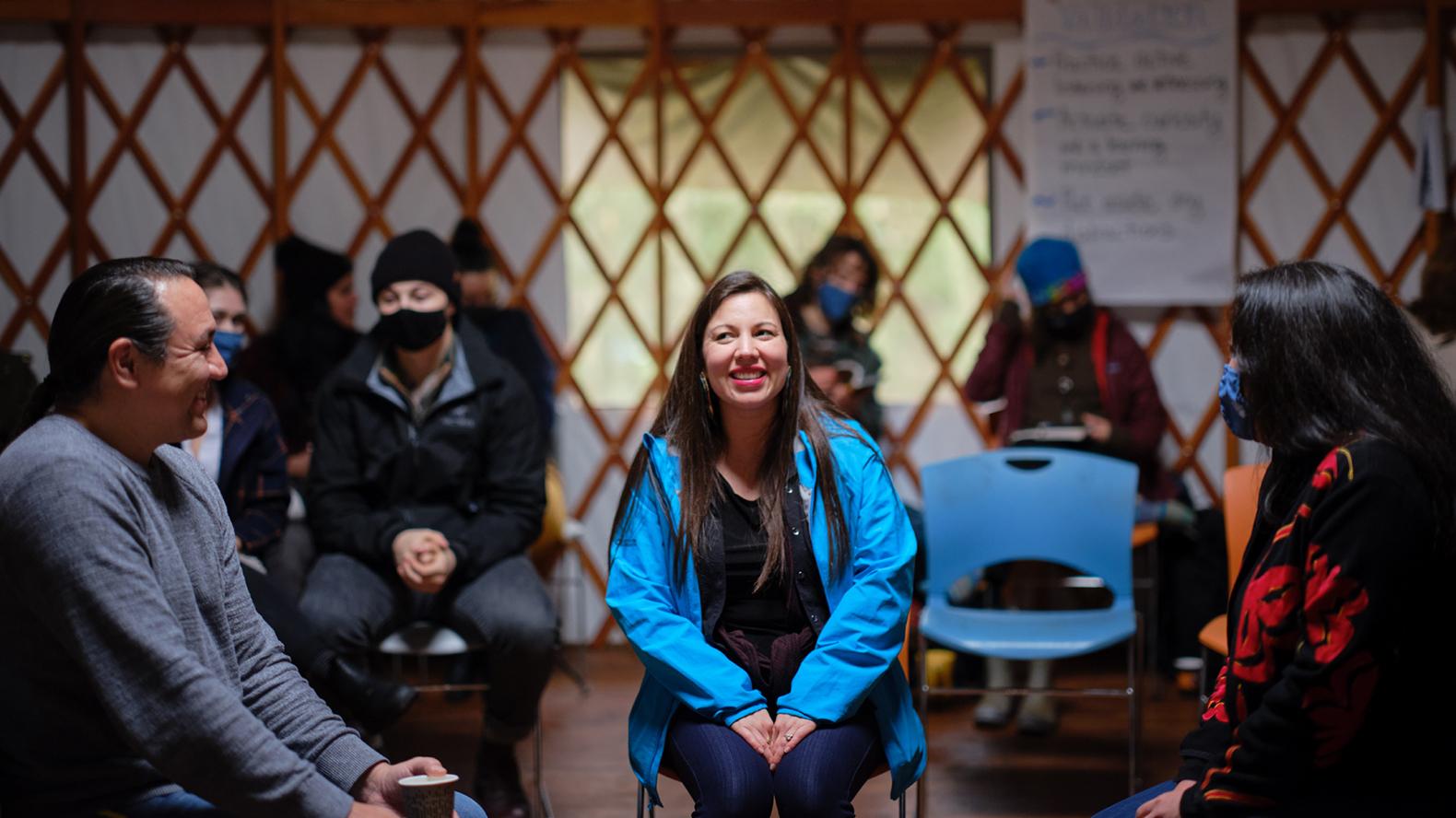
Article by Nadia Joe, Co-Manager, Climate Emergency Response, Sustainability Hub
Photos by Rachel Topham Photography
The health and well-being of our planet is inherently linked to the availability of safe clean waters. And for Indigenous peoples, water has often been respected as a transformer: wielding the power to both harm and to heal. Many of the lessons for respecting the transformative power of water comes from stories, songs, prayers and ceremonies. These teach us ways for living and being in alignment with our more-than-human relations.
On March 22, 2022 – as a way to mark World Water Day and the connections between us – the Sustainability Hub and Centre for Sustainable Food Systems at UBC Farm invited guests from across the UBC community and our host Nation to collectively reflect on the songs and stories of transformation that will support the creation of new (and re-newed) pathways for sustainability and climate justice.
We invited participants to join us in the yurt at UBC Farm for an evening immersed in song and story, exploring ideas related to transformation of ourselves and our relationship to our world and each other, and reconnection as one pathway towards climate action.
Teachings from the circle
Three Indigenous scholars – Dr. Danielle Ignace, Dr. Shandin Pete, and Daqualama (Jocelyn Joe-Strack) – opened our circle in search of stories to help us restore and re-story our world and our relationships with it.
Dr. Shandin Pete, Assistant Professor, Earth, Oceans and Atmospheric Sciences, shared a story on learning, teaching, and growing in our role(s). Ending his story with a song from his people, Shandin explained that singing is a vital piece of data for understanding Indigenous land- and water-scapes.
Dr. Danielle Ignace, Assistant Professor, Forestry and Conservation Sciences, offered a reminder that we have everything we need inside of us. She reflected on the ability for a single seed to flourish with knowledge and information from its ‘parents’ and a nurturing environment, and the significance of water cursing through that growth.
Daqualama engaged the audiences in stories about answering the call from ancestors. From a story about a glacial lake in the Yukon from long ago, to one about visiting Kusawa Lake with her daughter, Daqualama illustrated her motivation to step forward in a way that honours the love for her people and her lands.
A calling in to the circle
Lessons for sustainability emerge from the land and knowledge shared by the ancestors and passed among us. Following the stories of our guest speakers, the circle invited other members from the audience to engage in dialogue.
Participants in the circle spoke about their journey from head to heart, experience that drew attention to respecting multiple ways of knowing and being on the land, and the power of reconnection as climate action.
Closing the circle
Closing this circle was not an end but a beginning. In inviting our three guest speakers to share a closing song, story or statement, we heard about the importance of connecting our many parts to become whole, following our hearts to get to a good place, and sharing stories to find connections and hope for a shared future.
No story is shared in isolation. This event was only possible thanks to a generous and gracious team of partners including Pablo Beimler, Nadia Joe, Tim Herron, and Linda Nowlan from the Sustainability Hub; Jaylin Melnichuk and Clare Cullen from the Centre for Sustainable Food Systems at UBC Farm; guests Dr. Danielle Ignace, Dr. Shandin Pete, and Daqualama; chefs at Salishan Catering; photographer Rachel Topham; and a room of gracious participants.
Accountabilities – to these lands and our host communities
For members of Vancouver campus community, the journey towards sustainability and climate justice is hosted on the unceded and ancestral lands of xʷməθkʷəy̓əm (Musqueam). Our hosts teach us that the ancestors of these lands fortified this area to “raise our warriors to protect Mother Earth...1" For our team, we remain committed to the collective responsibilities to honour these teachings and adhere to the guiding principles and protocols shared with us from Musqueam elders and leaders. As guests to these lands, we respect and practice the responsibilities we have to engage in meaningful dialogue with our hosts and continue to build relationships grounded in mutual respect, trust and reciprocity.
[1] Councillor Morgan Guerin, March 11, 2020. Climate Emergency Task Force Report (2021) p.1.





